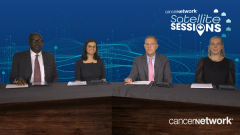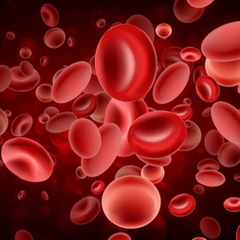
MM: Influence of CAR T-Cell Therapy on Clinical Care
The panel discusses how the emergence of CAR T-cell therapy has changed clinical care for patients with multiple myeloma.
Episodes in this series

Transcript:
Peter Voorhees, MD: How has the emergence of CAR [chimeric antigen receptor] T-cell therapy impacted your care of patients at LCI [Levine Cancer Institute]? Amy, I’m going to start with you.
Amy Soni, MD: How has it impacted my patients?
Peter Voorhees, MD: Yes, what kind of patient would you consider for CAR T-cell therapy in your practice?
Amy Soni, MD: Similar to similar indications, as was discussed, in today’s day and age with GRIFFIN and the other regimens we have available, most of my patients do really well just with first-line therapy or perhaps they’re on something because they’ve relapsed. But my need for it so far has not been that great because patients are doing well.
Peter Voorhees, MD: I think the problem is you’re young, so your patients are doing well. They haven’t had a chance to relapse multiple times yet. So with that in mind, I’ll go to Kwabena, a little more age on you.
Kwabena Osei-Boateng, MD: I think it’s exciting because my…experience is that with CAR T-cell therapy, for patients who are eligible, it’s not as rigid as transplant. I think that even some of these transplant-ineligible [patients] are eligible for CAR T, which is really great. Going back to the whole thing about doing it earlier, just like with almost everything else, you try to get good control of the disease. I think it makes a lot of sense to do it early. And speaking as the oncologist on the panel, we get nervous about that, too, with breast cancer. We always have drugs coming up, with immunotherapy and everything we’ve used up front, it tends to show that [patients] do well. I think that it’ll be a good thing. I’m looking forward to seeing it or at least looking into it in those early stages. But it’s exciting because some of my transplant-ineligible [patients] are actually eligible for CAR T-cell therapy. So hopefully more will have access to it.
Peter Voorhees, MD: Yes.
Amy Soni, MD: Do you think we’ll get to the point where we won’t do transplant, we’ll just give [patients] CAR T?
Peter Voorhees, MD: That’s a great question. And there’s actually a randomized phase 3 study that’s addressing this very question called CARTITUDE-6. This is a study where patients will get induction therapy with daratumumab-RVd, and they’re going to be randomly assigned to transplant or cilta-cel [ciltacabtagene autoleucel] CAR T-cell therapy. They’ll get a defined duration of [lenalidomide] maintenance afterward, not indefinitely. And we’ll see which group does better. That’s a study that’s actively enrolling patients in Europe. The FDA wanted more safety data before the US sites would be allowed to participate. But that’s something that’s on our radar screen at Levine Cancer Institute…. We’ll get an answer to that, hopefully, in the not-too-distant future. That said, it’s going to take a tremendous amount of follow-up to see a difference in how these patients do, because the patients on GRIFFIN who got daratumumab-RVd, transplant, and then maintenance did very well. It’s going to take a tremendous amount of follow-up.
Transcript is AI-generated and edited for clarity and readability.
Newsletter
Stay up to date on recent advances in the multidisciplinary approach to cancer.








































